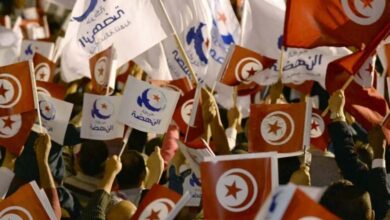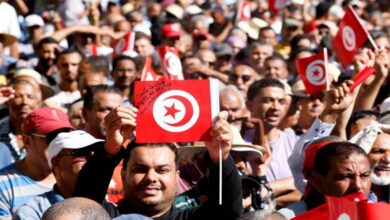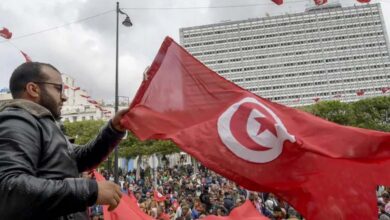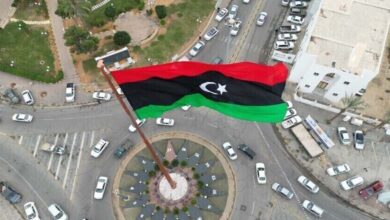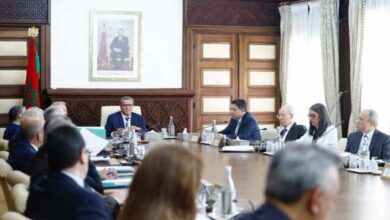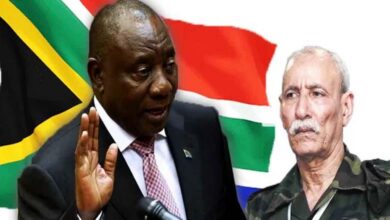Tunisia – Saied Raises Diplomatic Representation with Syria
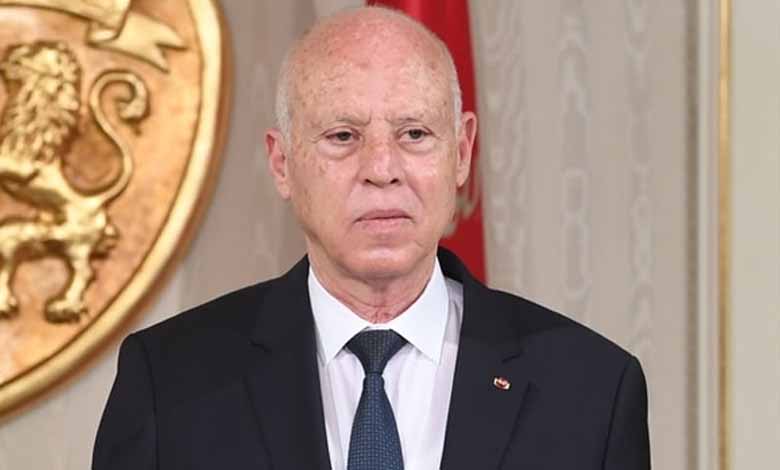
Tunisian President Kais Saied on Thursday raised the level of diplomatic representation in Syria, in a statement posted on his official social media accounts, as the move is the clearest sign yet that Tunisia may fully normalize diplomatic relations with Damascus amid growing Arab solidarity with Syria after a devastating earthquake killed and injured thousands.
Several Arab planes loaded with aid have streamed into the Syrian capital’s airport since Monday, giving the impression that the humanitarian disaster and one of the worst woes Syria has been facing after the ordeal of the war could open the doors to break the isolation of the Syrian regime after more than a decade of isolation.
Tunisia severed diplomatic relations with Syria in protest at President Bashar al-Assad’s regime’s crackdown on anti-government protests more than a decade ago.
Tunisia then returned to Syria a limited diplomatic mission in 2017, seeking to track down more than 3,000 Tunisian extremist fighters in Syria.
“The issue of the Syrian regime is an internal affair that concerns Syrians on their own,” Ben Ammar said in a statement following a meeting with Othman al-Jerandi, the new Tunisian foreign minister. “An ambassador depends on the state, not the regime.”
Analysts say Syrian President Bashar Assad is seeking political gains from the earthquake, which devastated large parts of Syria and Turkey, and is pressing for foreign aid to be sent through Syrian territory to gradually break free from the international isolation imposed on him.
The Tunisian president spoke of the many historic landmarks that Syria has experienced since the beginning of the 20th century and the arrangements that have since taken place to divide them.
He also touched on the Syrian constitutional experience and how the Assembly that was to draft a Syrian constitution was besieged, and the bloody days that followed were the result of the Syrian rejection of any foreign intervention.
Tunisia on Wednesday sent a third plane to Syria carrying urgent humanitarian aid, rescue and medical teams, as part of the solidarity with the Syrian people after the earthquake that left thousands of victims and injured.
The three aircraft shipments include 28 tons of food, medicine, infant milk, blankets and clothing provided by state institutions such as the Tunisian Union for Social Solidarity and the Tunisian Red Crescent.
On Tuesday, it sent two planes loaded with urgent humanitarian aid, rescue and rescue teams, and civilian protection and medical crews to the Syrian and Turkish people.
Since Saied’s extraordinary actions on July 25, 2021, Tunisia has sent signals that it is changing its diplomatic policy with Syria.
During a decade of Islamist rule led by Ennahdha, thousands of Tunisian jihadists joined extremist organizations, some of whom were killed, others detained by Syrian regime forces, and some returned to the country.
The Tunisian president’s decision comes as the judiciary considers one of the more complicated terrorist cases involving the recruitment of Tunisian jihadists into hotbeds of tension, estimated by the UN to number between 5,000 and 6,000 in the years following the outbreak of the Syrian conflict.
The anti-terrorism judicial branch is investigating leaders of Ennahdha for their alleged involvement in the case, including former Prime Minister Ali Larayedh, who is also deputy chairman of the movement.
Restoring diplomatic relations with Damascus could greatly benefit the investigations into the Tunisian jihadists’ travel to Syria, and it could open a lot of files with the presence of Tunisian IS detainees in the prisons of the Syrian regime.
It is also likely that the Syrian regime has a lot of files that could be useful to Tunisia in the fight against terrorism, after official Syrian media broadcast over the past years testimonies of Tunisian jihadists who revealed their travel to Syria, from the beginning of recruitment and recruitment to the collection centers in Libya up to their transfer on flights operated by a company created by a warlord and a former commander in the Libyan Fighting Group, to the stage of entering Syrian territory unimpeded across the border from Turkey.
Tunisian detainees testified that they were facilitated to travel to Libya and from there to Istanbul until they entered Syrian territory without hindrance.
Opposition political leaders have accused Ennahdha of being involved in interpreting jihadists, a charge it has repeatedly denied, while the issue of Ennahdha’s chief justice Noureddine Beheiri was recently reopened.
Beheiri was detained and questioned before being granted a police release with travel bans pending investigations, including into the sale of Tunisian citizenship and foreign passports.
It is not clear whether Saied’s decision to increase diplomatic representation in Syria was related to the jihadist travel dossier, but Tunisia is more likely to take advantage of this move as part of its counterterrorism efforts.





